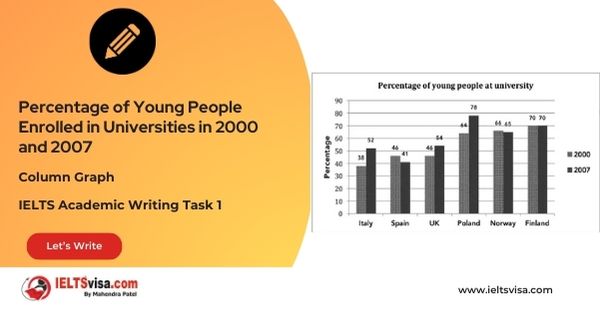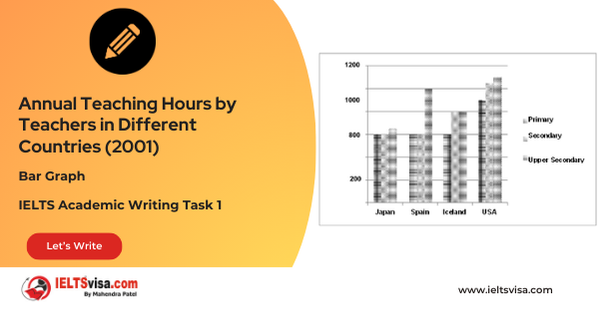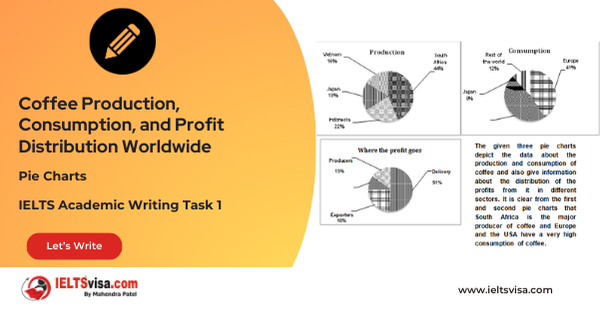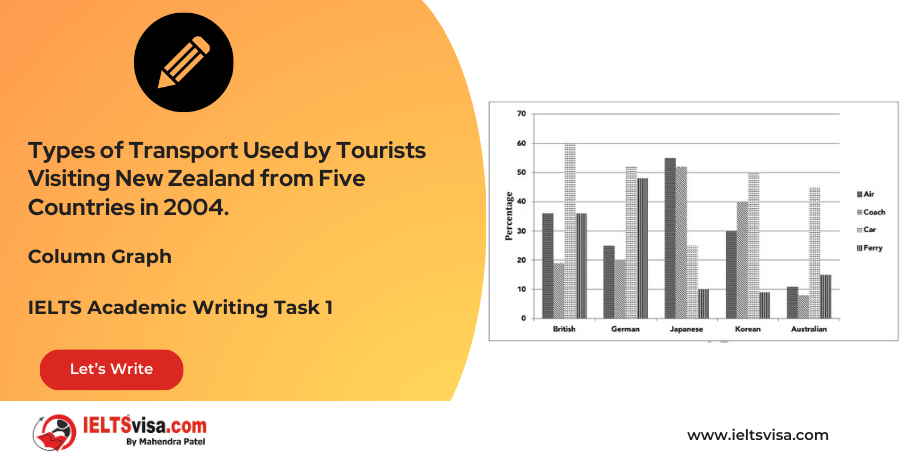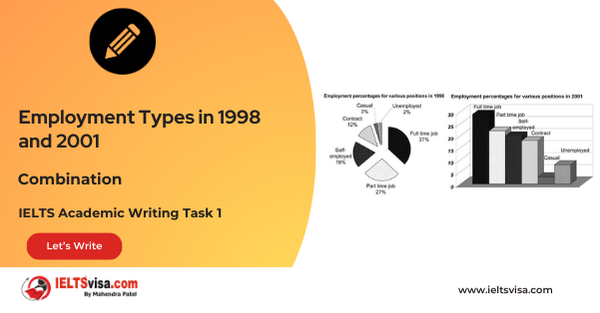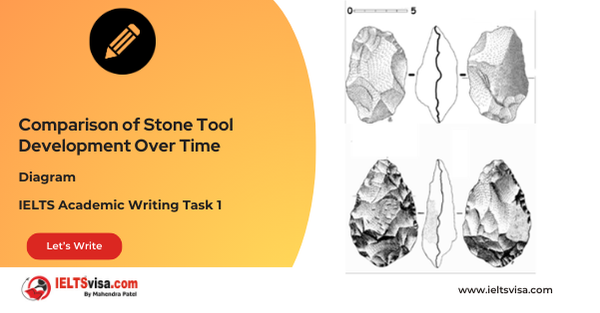The population ratio of females per 100 males in six different areas in 1995 and 2005
IELTS Academic Writing Task 1 - Tables
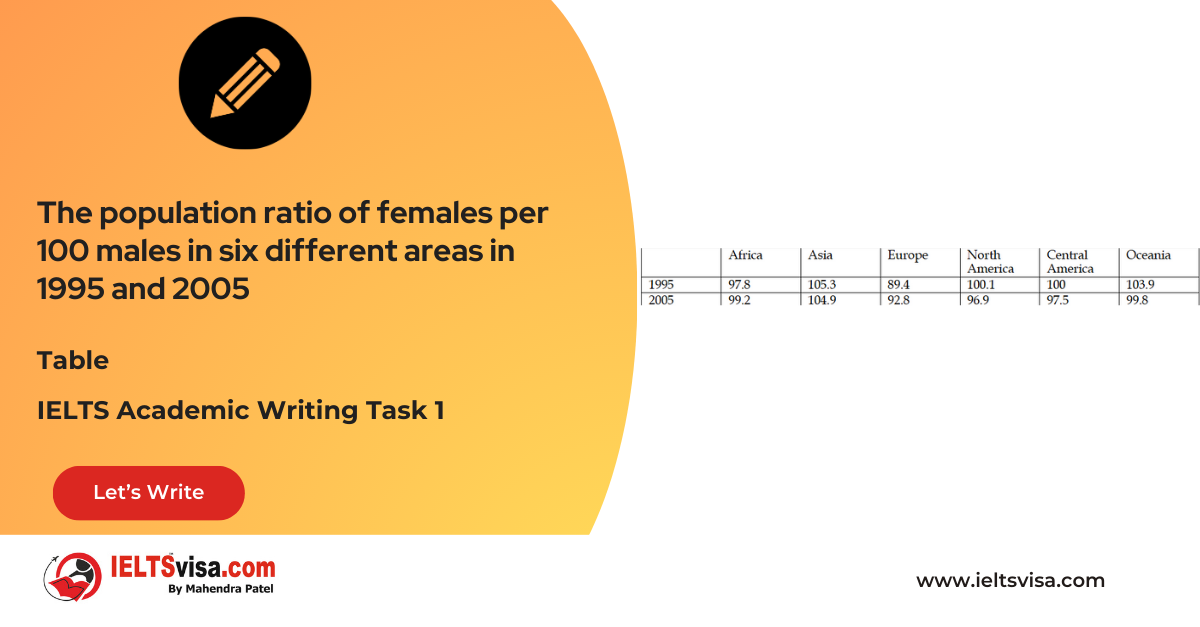
IELTS Writing Task 1 Question
The table shows the population ratio of females per 100 males in six different areas in 1995 and 2005. (Africa, Asia, Europe, North America, Central America and Oceania). Summarize the information by selecting and reporting the main features and make comparisons where relevant.

Common Questions for the Table
1. Graph Type: Table
2. Title: Female-to-Male Population Ratio in Six Regions (1995 and 2005)
3. What are the units of measurement?: Ratio of females per 100 males
4. Who: Population of six regions (Africa, Asia, Europe, North America, Central America, and Oceania)
5. When: 1995 and 2005
6. Where: Global regions (as specified)
7. Topic: Trends in female-to-male population ratio over 10 years
Comparison Showing and Trends Any change over time (such as an increase or a decrease) is a trend.
Comparison 1 : Decrease in Female-to-Male Ratios
- Details:
-
- North America: Declined significantly from 100.1 in 1995 to 96.9 in 2005.
- Central America: Dropped from 100 to 97.5.
- Oceania: Reduced from 103.9 to 99.8.
- Asia: Experienced a minimal decrease, falling by 0.4 (98.2 to 97.8).
Comparison 2 : Increase in Female-to-Male Ratios
Details:
1. Europe: Rose from 89.4 in 1995 to 92.8 in 2005.
2. Africa: Increased by 1.4, from 99.6 to 101.0.
Sample Answer
The table compares the ratio of females to males across six regions in 1995 and 2005.
Overall, the female-to-male population ratio varied across regions, with Europe and Africa witnessing growth, while the other four – North America, Central America, Oceania, and Asia regions experienced declines. The largest changes occurred in Oceania and North America, while Asia saw the least variation.
In 1995, North America had a slight surplus of women (100.1 per 100 men), which fell significantly to 96.9 by 2005. Central America and Oceania followed similar trends, declining from 100 to 97.5 and from 103.9 to 99.8, respectively. Asia’s ratio also decreased slightly from 98.2 to 97.8, marking the smallest reduction among the regions.
In contrast, Europe and Africa showed upward trends. Europe’s ratio increased notably from 89.4 in 1995 to 92.8 in 2005, while Africa’s ratio rose modestly by 1.4, reaching 101.0 in 2005.
Top 32 Vocabularies
| Vocabulary | Type | Meaning | Synonyms | Examples |
| Ratio | Noun | The quantitative relation between two amounts | Proportion, Fraction | The ratio of females per 100 males is shown in the table. |
| Proportion | Noun | A part or share of the whole | Percentage, Share | The proportion of women in North America decreased. |
| Downward Trend | Noun | A consistent decrease over time | Decline, Reduction | Most regions showed a downward trend in the female-to-male ratio. |
| Contrast | Noun/verb | A noticeable difference | Difference, Divergence | In contrast, Africa saw an increase in the female ratio. |
| Witness | Verb | To see or experience a change | Observe, Record | Europe witnessed an increase in the number of women per 100 men. |
| Increase | Noun/Verb | A rise in quantity or amount | Growth, Gain | The female proportion in Africa experienced an increase. |
| Decrease | Noun/Verb | A reduction in quantity or amount | Drop, Decline | The ratio in North America decreased significantly. |
| Experience | Verb | To undergo a change or event | Undergo, Encounter | Central America experienced a decline in the female ratio. |
| Population | Noun | The number of people in a specific group | Inhabitants, Residents | The population ratio changed across all regions. |
| Area | Noun | A specific geographical region | Region, Zone | Africa and Europe were the only areas with an increase in ratio. |
| Demographic | Noun/Adjective | Relating to the structure of populations | Population group, Census | “The table highlights demographic differences between regions.” |
| Surplus | Noun | An amount greater than what is needed | Excess, Overage | “North America had a slight surplus of women in 1995.” |
| Modest | Adjective | Small in size or amount | Slight, Minimal | “Africa experienced a modest increase in the ratio.” |
| Notable | Adjective | Worthy of attention | Significant, Remarkable | “Europe showed a notable increase in its female-to-male ratio.” |
| Variation | Noun | A change or difference in condition or amount | Difference, Fluctuation | “Asia saw the least variation in the ratio.” |
| Decline | Noun/Verb | A decrease or reduction | Drop, Reduction | “Central America experienced a decline in the ratio.” |
| Upward Trend | Noun | A consistent increase over time | Growth, Increase | “Europe and Africa displayed an upward trend in the ratio.” |
| Region | Noun | A specific area or division | Area, Zone | “The data compares six global regions.” |
| Consistent | Adjective | Showing steady and reliable patterns | Stable, Regular | “Africa showed consistent growth in the female ratio.” |
| Marked | Adjective | Clearly noticeable or significant | Pronounced, Evident | “North America had a marked decrease in the ratio by 2005.” |
| Reduction | Noun | The act of decreasing something | Decrease, Cut | “Asia experienced the smallest reduction in its ratio.” |
| Proximity | Noun | Nearness in time, space, or relationship | Closeness, Nearness | “Oceania’s proximity to Asia might explain their similar trends.” |
| Stability | Noun | The state of being stable or unchanging | Balance, Consistency | “Asia’s population ratio remained relatively stable.” |
| Shift | Noun/Verb | A change in position or trend | Change, Transition | “There was a significant shift in the ratios for North America.” |
| Distribution | Noun | The way something is spread out or shared | Allocation, Spread | “The distribution of ratios varied across the regions.” |
| Fluctuation | Noun | Irregular changes in amount or level | Variation, Instability | “Oceania experienced greater fluctuations in the ratio.” |
| Prominent | Adjective | Noticeable or important | Significant, Distinct | “The changes in Oceania were particularly prominent.” |
| Ratio Analysis | Noun | The examination of numerical relationships | Data comparison, Evaluation | “The ratio analysis reveals trends over a 10-year period.” |
| Marginal | Adjective | Small or minor in significance | Insignificant, Minimal | “Asia showed a marginal decrease in the female ratio.” |
| Surge | Noun/Verb | A sudden and large increase | Rise, Growth | “Africa experienced a surge in its female ratio.” |
| Prevalence | Noun | The state of being widespread | Dominance, Commonality | “The prevalence of female surplus varied across regions.” |
| Comparable | Adjective | Able to be compared | Similar, Equivalent | “The ratios in Europe and North America are comparable in 1995.” |

Our Books
Master IELTS Speaking Part 1
IELTS Writing Task 1 Book
IELTS Writing Task 2 Book
Writing Task 1 Question Types
Practice IELTS Other Modules
IELTS Listening
The IELTS Listening test assesses how well you can understand spoken English in various contexts. It lasts about 30 minutes and is divided into four sections with a total of 40 questions. The listening tasks become increasingly difficult as the test progresses.
IELTS Academic Reading
The IELTS Academic Reading section assesses your ability to understand and interpret a variety of texts in academic settings. It is designed to evaluate a range of reading skills, including skimming for gist, reading for main ideas, reading for detail, understanding inferences, and recognizing a writer's opinions and arguments.
IELTS Speaking
The IELTS Speaking test assesses your ability to communicate in English on everyday topics. It lasts 11-14 minutes and consists of three parts: introduction, cue card, and a discussion based on the cue card topic.
IELTS General Reading
IELTS General Reading tests your ability to understand and interpret various types of texts. Here are some key areas and types of content you can expect to encounter in the reading section, along with tips for effective preparation.
IELTS Academic Writing Task 1
In IELTS Academic Writing Task 1, you are presented with a visual representation of information, such as graphs, charts, tables, or diagrams, and you are required to summarize, compare, or explain the data in your own words.
IELTS General Writing Task 1
In IELTS General Writing Task 1, you are required to write a letter based on a given situation. The letter can be formal, semi-formal, or informal, depending on the prompt. Here’s a breakdown of the key components to include in your letter
IELTS Academic Writing Task 2
In IELTS Academic Writing Task 2, you are required to write an essay in response to a question or topic. Here’s a guide to help you understand the essential elements of this task
IELTS Exam Tips
To succeed in the IELTS exam, practice regularly, familiarize yourself with the test format, improve your vocabulary, develop time management skills, and take mock tests to build confidence.
Grammer for IELTS
Grammar is the foundation of effective communication in English. Understanding tense usage, subject-verb agreement, and sentence structure enhances clarity and coherence in writing and speaking.
Vocabulary for IELTS
Vocabulary plays a crucial role in the IELTS (International English Language Testing System) exam, especially in the Speaking and Writing sections. Here’s an overview of why vocabulary is important and how it impacts your performance
RECENT IELTS SAMPLES QUESTIONS AND ANSWERS
Task 1 – Column graph – Percentage of Young People Enrolled in Universities in 2000 and 2007.
20:00 Start Pause Stop [df_adh_heading title_infix="IELTS Writing Task 1 Question" use_divider="on"...
Task 1 – Bar Graph – Annual Teaching Hours by Teachers in Different Countries (2001)
20:00 Start Pause Stop [df_adh_heading title_infix="IELTS Writing Task 1 Question" use_divider="on"...
Task 1 – Pie Charts – Coffee Production, Consumption, and Profit Distribution Worldwide
20:00 Start Pause Stop [df_adh_heading title_infix="IELTS Writing Task 1 Question" use_divider="on"...
Task 1 – Column graph – Types of Transport Used by Tourists Visiting New Zealand from Five Countries in 2004.
20:00 Start Pause Stop [df_adh_heading title_infix="IELTS Writing Task 1 Question" use_divider="on"...
Task 1 – Bar and Pie Chart Combination – Employment Types in 1998 and 2001
20:00 Start Pause Stop [df_adh_heading title_infix="IELTS Writing Task 1 Question" use_divider="on"...
Task 1 – Diagram – Comparison of Stone Tool Development Over Time
20:00 Start Pause Stop [df_adh_heading title_infix="IELTS Writing Task 1 Question" use_divider="on"...

